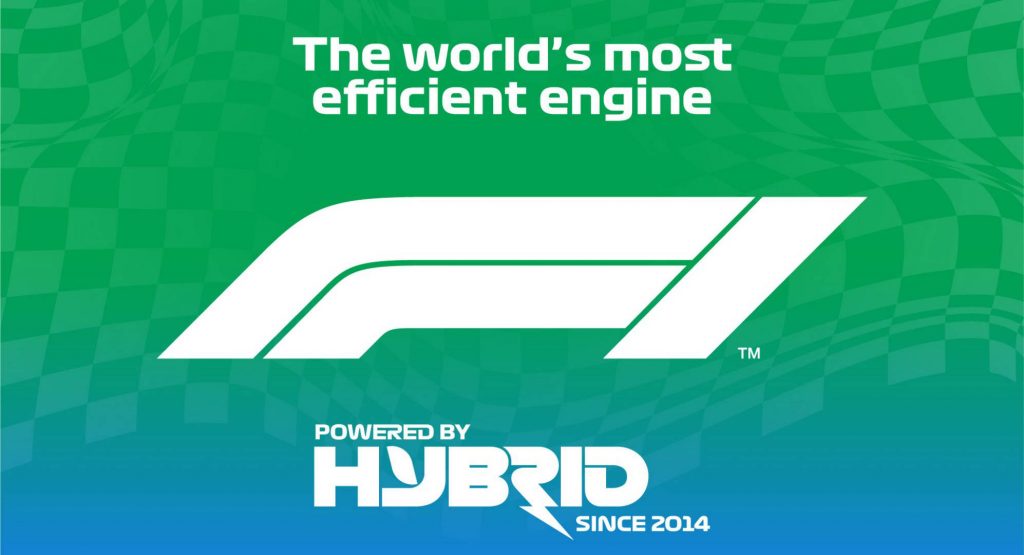Formula 1 made the switch to V6 hybrid-powered drivetrains seven years ago. Now, as the sport moves into a new era where it fights for relevance, F1 is introducing a new range of graphics at next weekend’s race in Brazil that highlights the green ambitions of the series.
The green-themed graphics come with a new tagline: “The world’s most efficient engine.” The current F1 hybrid power unit is indeed the most efficient in the world, with engines achieving 52 percent thermal efficiency, with no other light vehicle reaching more than 40 percent.
A Future Beyond EVs?
Despite an increasing focus from road-car manufacturers towards an EV future, Formula 1 still thinks it can remain the leader for the auto industry with its hybrid internal combustion engines. A new engine, scheduled to be introduced in 2025, will be powered by “drop-in advanced sustainable fuel.” F1 believes that this will lead to an additional path, alongside electrification, with the series saying that their efforts could have a far more extensive and beneficial impact on the environment.
https://www.instagram.com/p/CWGHkUmo5DI/?utm_source=ig_web_copy_link
This year’s cars run a 5.75 percent biofuel blend, with that formulation increasing to 10 percent (aka E10) next year. The plan is to switch to a third-generation biofuel, also known as e-fuel, by 2025. By 2030, F1 plans to achieve net-zero carbon emissions and wants to offset its carbon footprint for all races on the way there.
There are other changes to the engine regulations for the new powertrains in 2025, with talks mostly centered around the removal of the MGU-H (Motor Generator Unit-Heat). The new rules may tempt other manufacturers, such as Porsche, into the sport, who we know are already experimenting with their e-fuel racing program.
But whether fans will approve of this shift remains to be seen. When the turbo-hybrid units were first introduced, spectators lamented the lack of noise — an element which has since been improved for the spectacle of the sport but remains a sore point for many. Despite F1’s green ambition, there’s a perception among some that measures such as fuel-saving, as well as limiting engine and cylinder capacity, only take away from the pinnacle of racing.
On the flip side, many auto manufacturers have planned for an end date to sell ICE vehicles, while many governments are urging the auto industry to stop the sale of fuel-burning vehicles. While Formula 1’s push to keep the internal combustion engine alive may be noble, it may go unnoticed by the majority of car makers it seeks to appeal to. Only time will tell.









